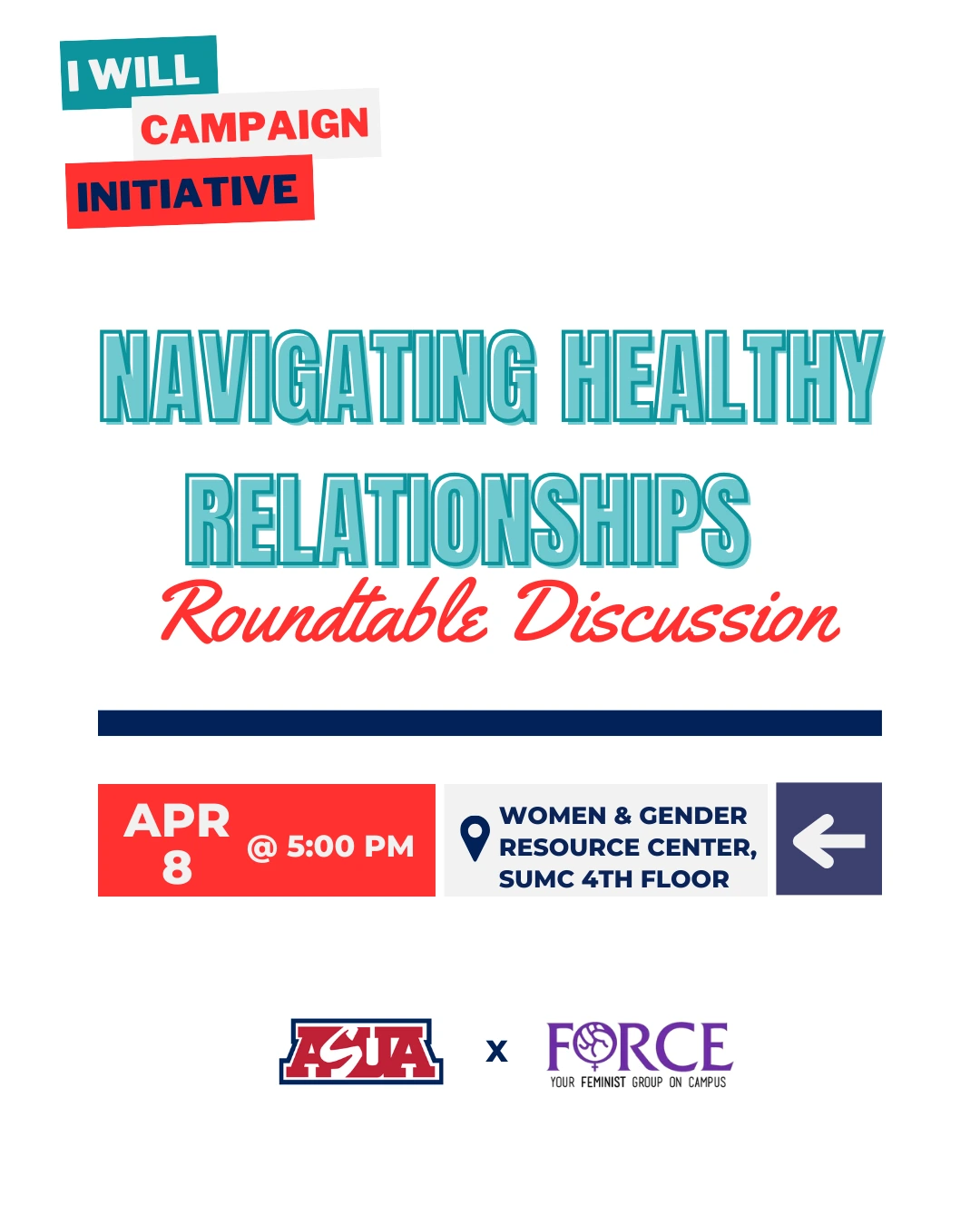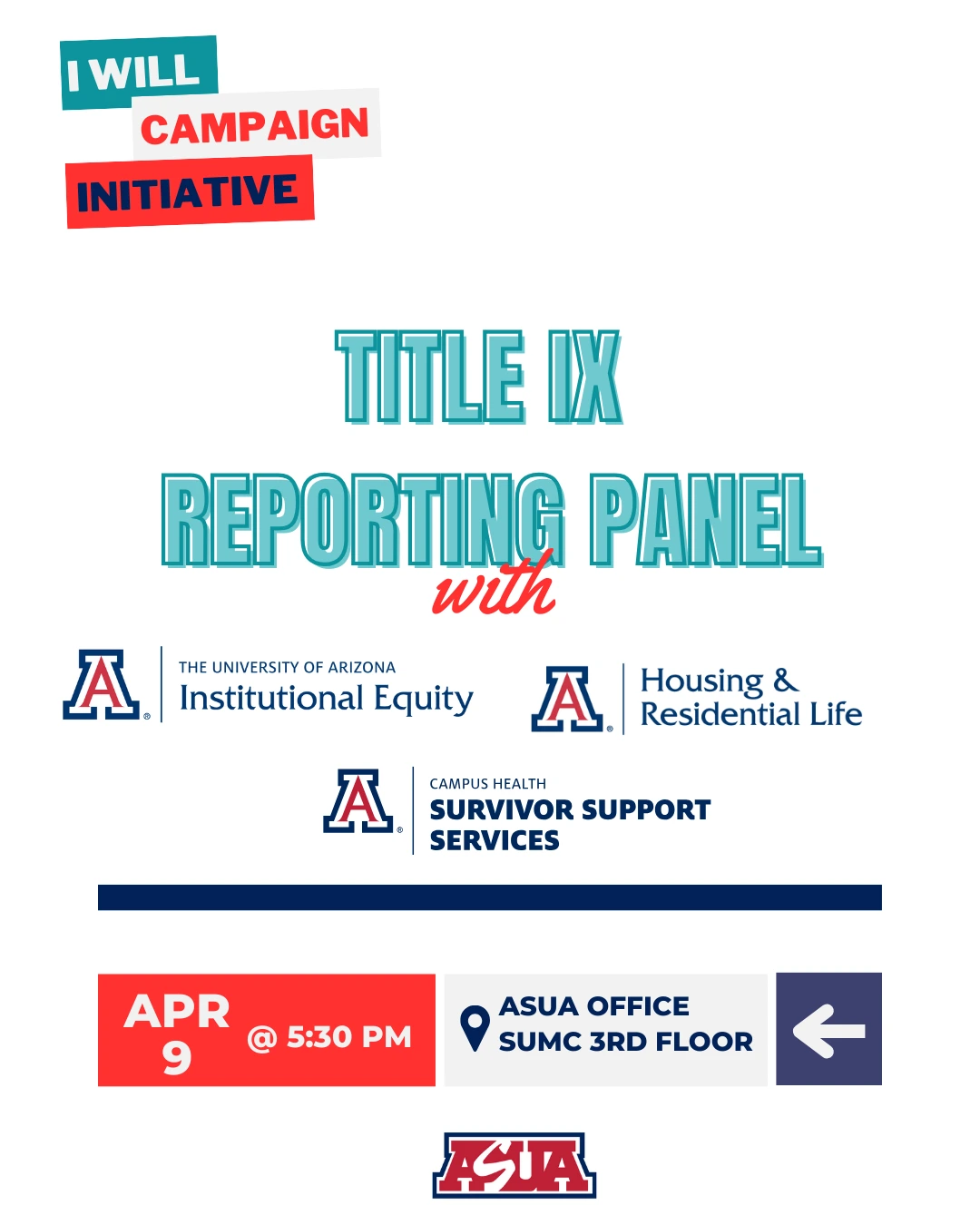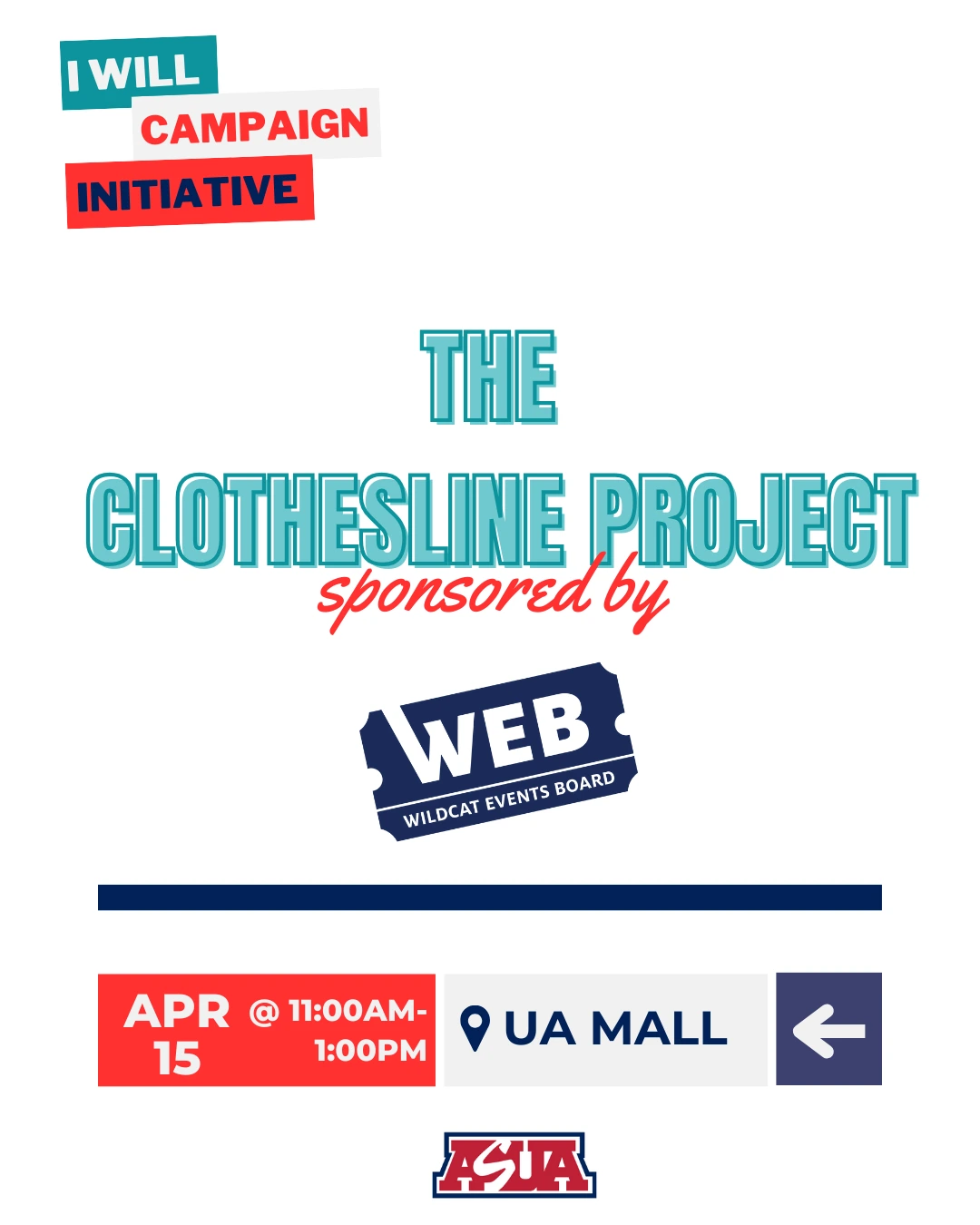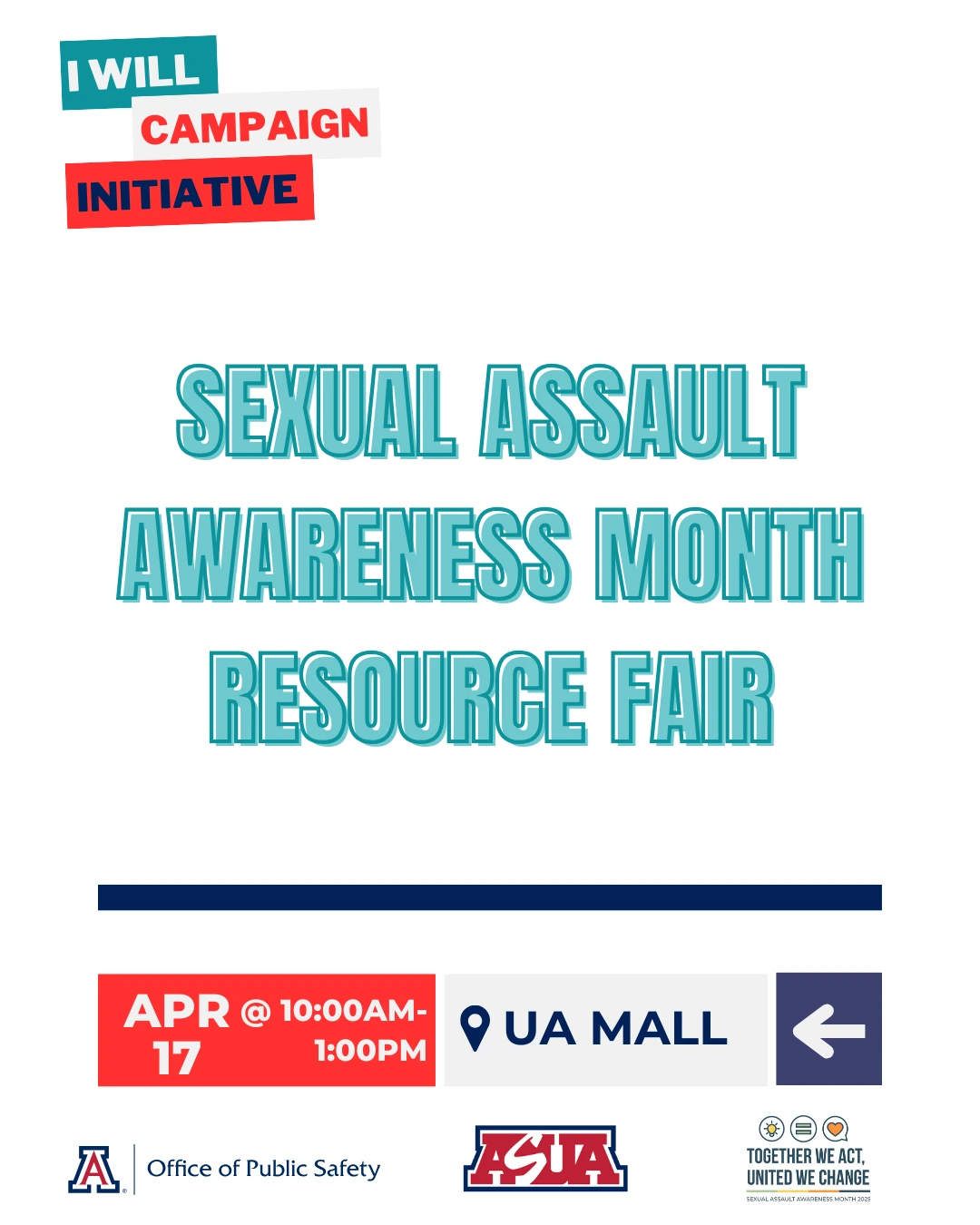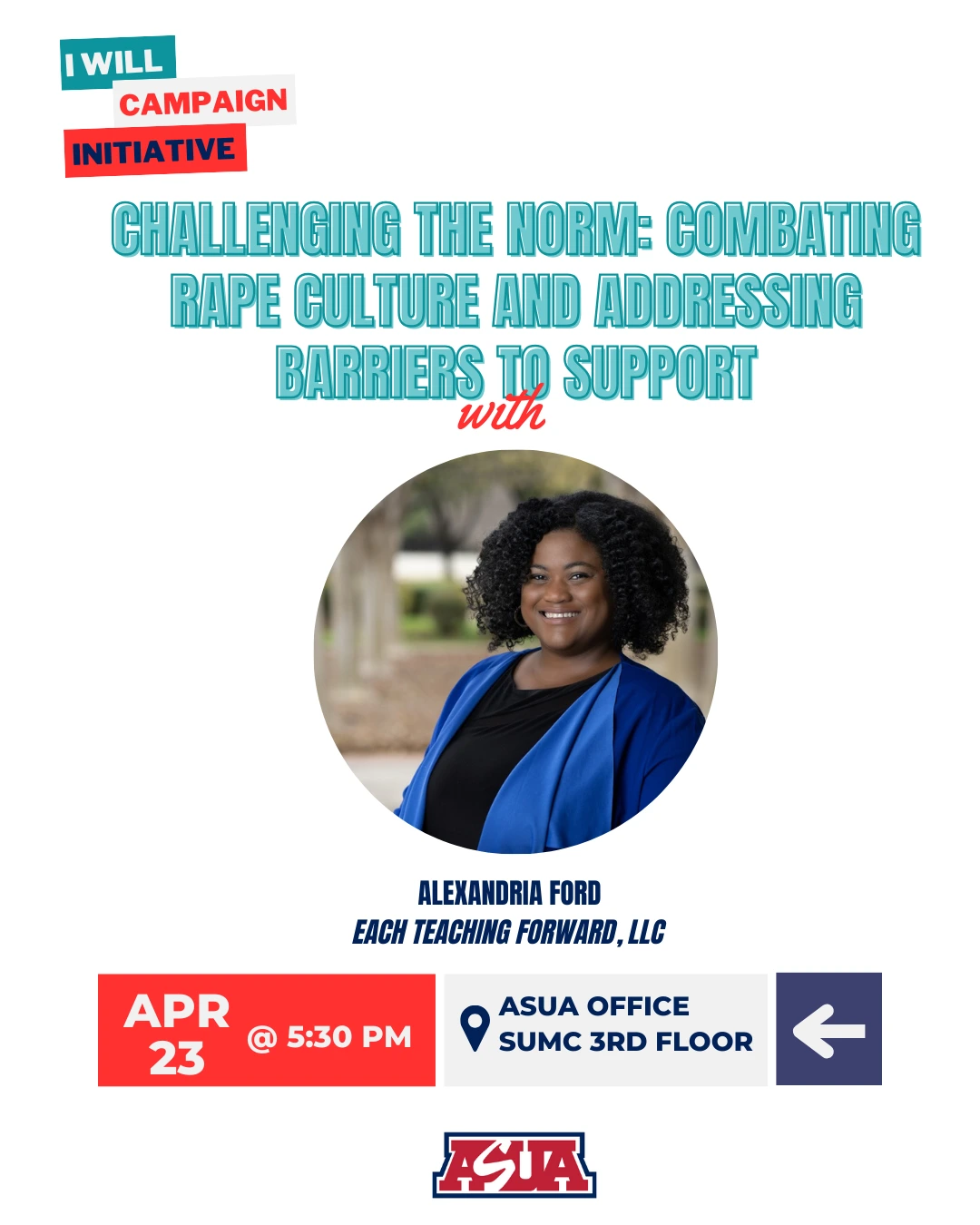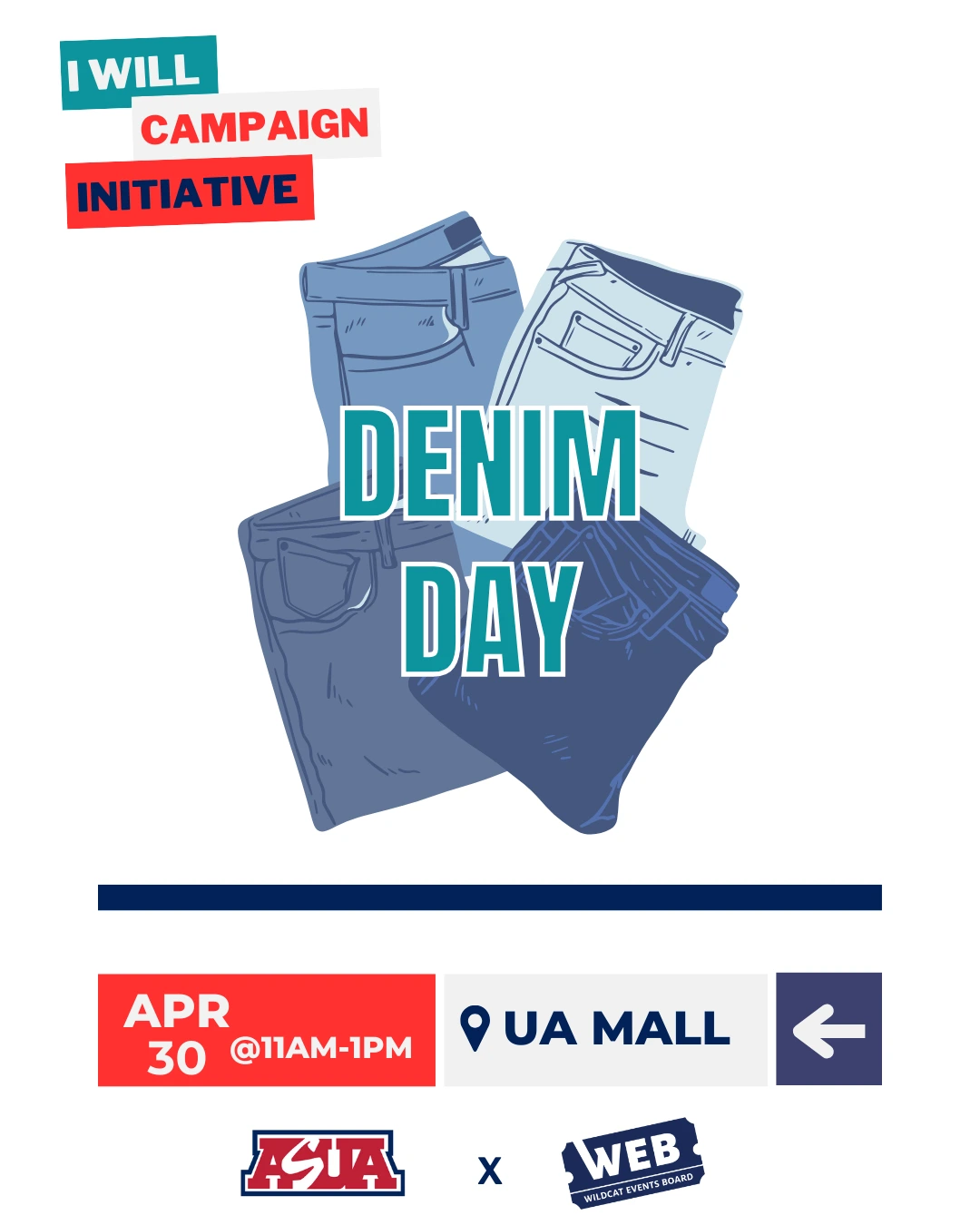The “I Will” Campaign Initiative is a student-led initiative aimed at ending rape culture by raising awareness of sexual assault and promoting consent. Rape culture is a term used to describe the normalization of sexual violence in society. Some examples of rape culture include:
- Victim blaming: putting the responsibility for the crime on the victim (i.e., “They were asking for it.”)
- Misuse of language: such as the casual use of the word “rape”
- Slut shaming: criticizing and making assumptions about a person’s presumed sexual activity.
Studies show that 1 in 5 women, 1 in 17 men, 1 in 4 trans people, and 1 in 4 Native women report being the survivor of a completed or attempted sexual assault while in college. Research indicates that 4 out of 5 survivors of sexual assault know their perpetrator. This is a problem on college campuses across the country, including the University of Arizona. The “I Will” Campaign focuses on combating stereotypes and recognizing rape culture as an issue that impacts people of all identities.
This is a problem on college campuses nationwide, including the University of Arizona. The “I Will” Campaign focuses on combating stereotypes and recognizing rape culture as an issue that impacts people of all identities.
Sign this pledge and we WILL work together to end rape culture by raising awareness of sexual assault and promoting consent. You can also find the pledge on the ASUA website at www.asuatoday.arizona.edu and in the link in our Instagram bio.
We are offering programs throughout April catered to this initiative and toward providing the information and tools necessary to put an end to rape culture. Join us to learn more!

MORE INFORMATION
With questions about access or to request any disability-related accommodations for this event such as ASL interpreting, closed-captioning or wheelchair access, please contact Alexandria Brown, abrown9@arizona.edu.
This information available from National Sexual Violence Resource Center.
Sexual violence is an umbrella term that includes any type of unwanted sexual contact — including sexual abuse, assault, and harassment.
Forms of sexual violence include:
- Rape or sexual assault
- Sexual harassment
- Sexual abuse
- Unwanted sexual contact/touching
- Sexual exploitation and trafficking,
- Exposing one’s genitals or naked body to others without consent,
- Nonconsensual image sharing and/or coercion (including AI-generated imagery)
- Words and actions of a sexual nature against a person’s will and without their consent
Statistics show:
- Over 53% of women and over 29% of men reported experiencing contact sexual violence (Chen, et al., 2023).
- More than 1 and 4 non-Hispanic Black women (29%) in the United States were raped in their lifetime (Basile et al., 2022).
- 1 in 3 Hispanic women (34.8%) reported unwanted sexual contact in their lifetime (Basile et al., 2022).
- More than 4 in 5 American Indian and Alaska Native women (84.3%) have experienced violence in their lifetime (Rosay, 2016).
- 32.9% of adults with intellectual disabilities have experienced sexual violence (Tomsa et al., 2021).
Victim Resources (U of A)
Survivor Handbook and other resources (SACASA)
Survivor Support Services (U of A Campus Health)
Survivor Support Counseling (U of A Campus Health / Survivor Support Services)


